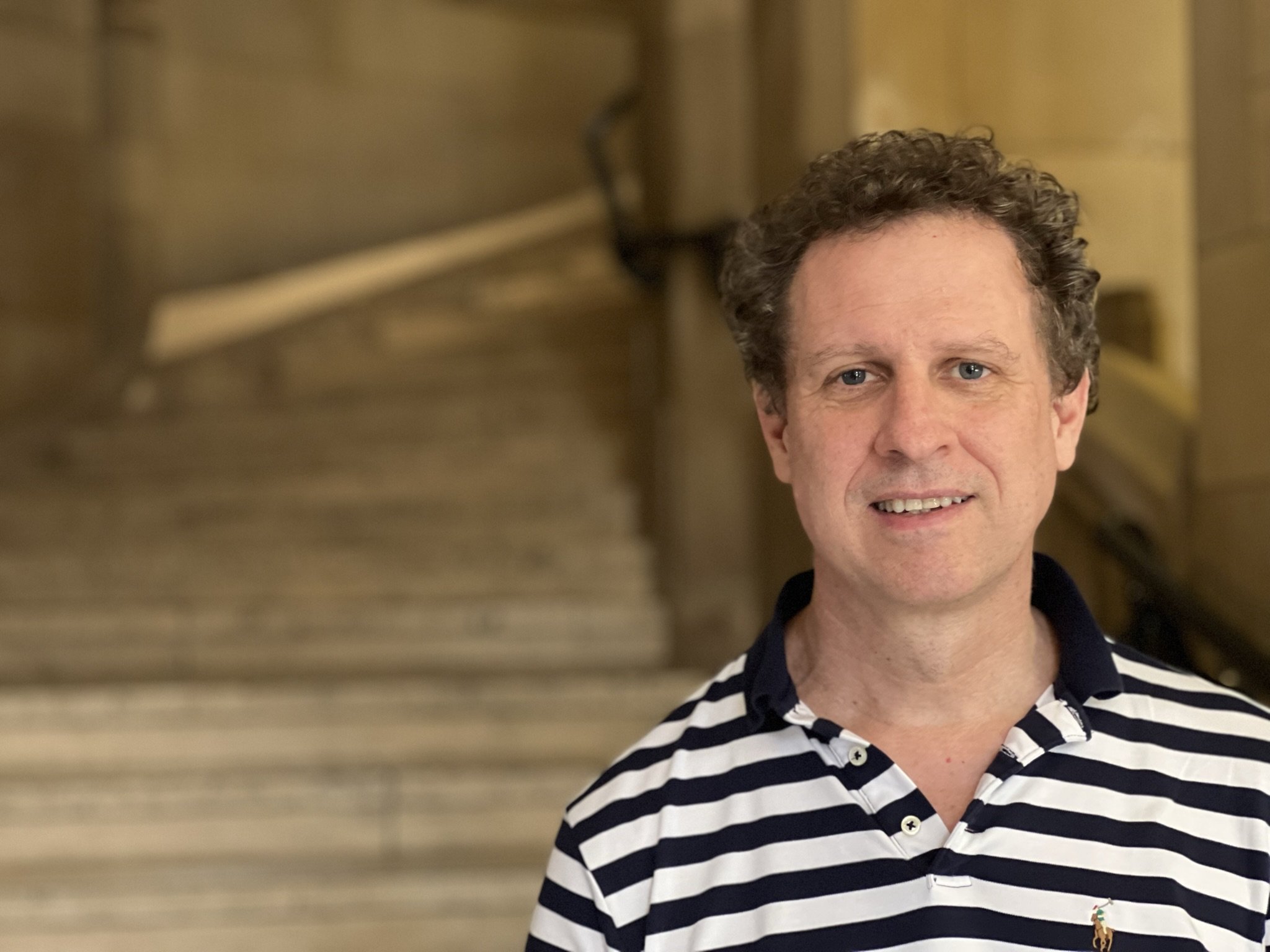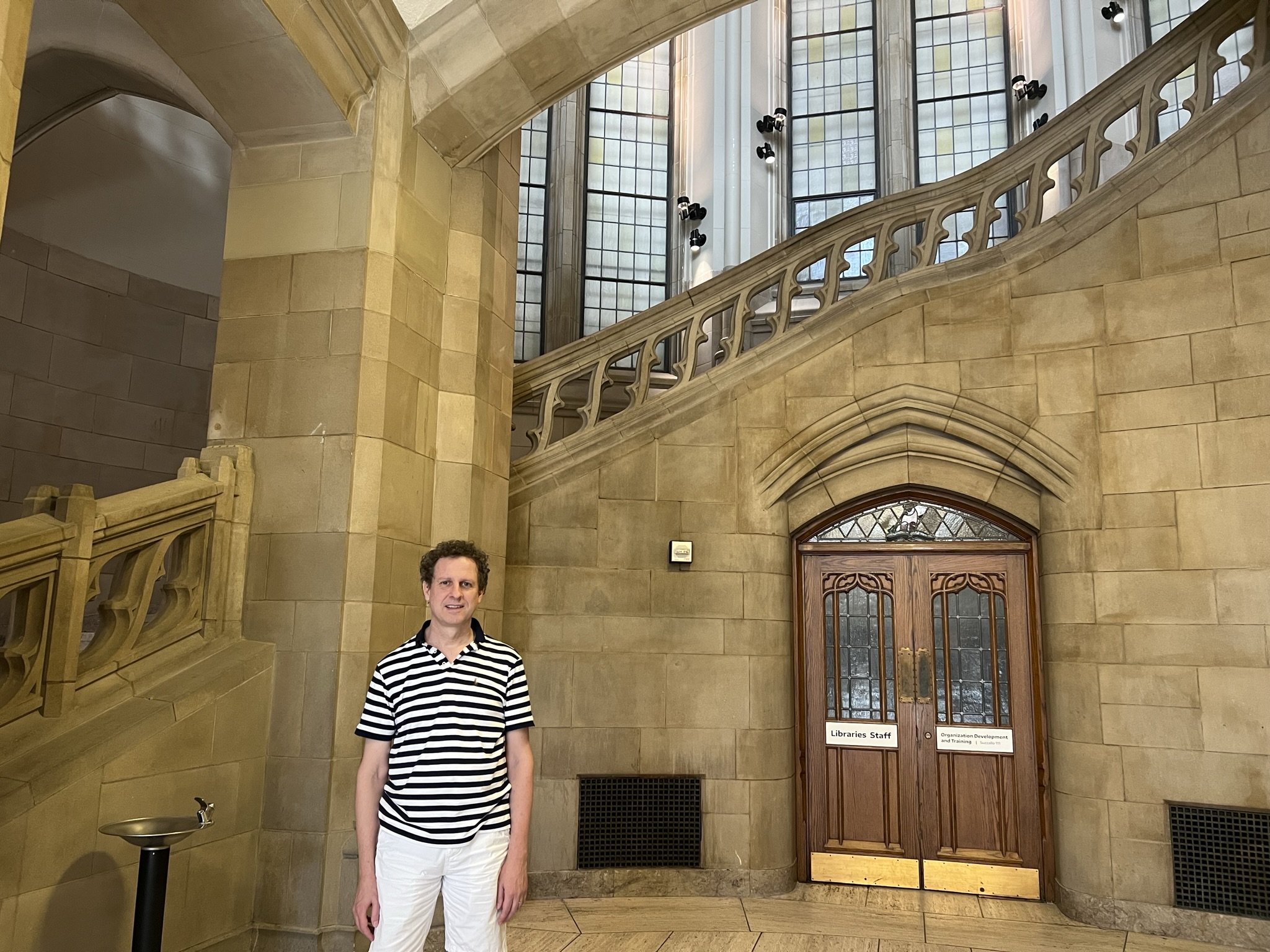Jody Geiger (BIO)
Jody Geiger is a theorist, an independent researcher & graduate of the Univ. of Florida. His time at the university began with the department of astronomy with ambitions to become a theoretical astrophysicist. In the first week of his Freshman year he landed a part-time job as an assistant to Dr. John E. Merrill working on research regarding binary star V1143. At the same time he consulted with Dr. James Ipser regarding a field of research Geiger later called Informativity.
In Geiger’s fourth year of university, he changed his major to English to focus studies on referential systems in a field known as Theory of Knowledge (TOK). Such systems of understanding are fundamental to how we perceive our reality and most importantly how we assess the physical significance of observation relative to other observations in elapsed time. Geiger completed his studies in 1992 to pursue a career in computers yet devoted a significant amount of time in the years following to finding a new description of gravitation. It is notable that Geiger rose the ranks serving nearly a decade as the Chief Data Officer of a $18B capital management company.
In February of 2016 Geiger resolved the first discrete formulation of gravitational curvature, a new mathematical approach having quantum accuracy across the entire measurement domain. This discovery led to descriptions for dark matter and dark energy and new expressions for the physical constants that do not reference other physical constants. That is, these new expressions consist only of the fundamental measures, each describing a difference between the non-discrete System Frame for the universe and the discrete Internal Frame. The new approach dramatically changes our understanding of nature and the laws of nature. Using this approach, six papers were published from 2018 to early 2020 presenting solutions to nearly 82.5% of the most significant problems in modern physics (covering general physics, quantum gravity, cosmology & general relativity). There are 33 solutions and 11 predictions of new physics, some which are confirmed with existing measurement data.
In November of 2020 Geiger took on the challenge of writing separate papers for each discovery, what turned out to be 48 papers in all. Each paper makes a specific, measurable, verifiable prediction that advances our understanding of the universe in a significant way. Notably, there have since been two new papers, a solution to the Hubble Tension and a solution to the Cosmological Constant Problem.
Collectively, the papers offer 1,700 expressions, of which approximately 500 are unique. All have been validated with measurement with digit-for-digit correspondence to the extent of our best measurements. Calculations are offered in supplemental excel documents which can be found in ‘online resources’ at Research Gate. The papers are organized such that all reference the introductory paper entitled, Measurement Quantization. This introduction contains 64 appendices, each presenting a solution to a significant problem in physical theory.
In February of 2023 Geiger met with Avi Loeb to discuss the future of MQ.
In May of 2023 Geiger was invited to join the editorial board for Scientific Reports / Nature.
For the last four years, using Research Gate read stats, adjusted for date of first publication on a per article basis, Geiger’s research receives the second most reads/article/year over the top 20 most notable physicists that actively maintain Research Gate profiles. Considering journals and Research Gate, there are 12,505 downloads and 48,535 reads of MQ research as of Apr. 13, 2024. Notably, MQ research is not indexed in arXiv.org, primarily discovered by word-of-mouth. Moreover, all of Geiger’s papers are single author, without benefit of the readership interests from large collaborations.
Click an image to display the full resolution version, then right-click and select ‘save as’ to download. Images may be reprinted so long as the author is identified.


















